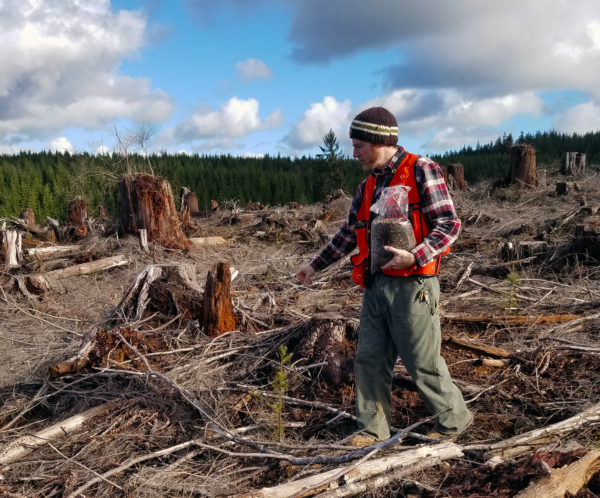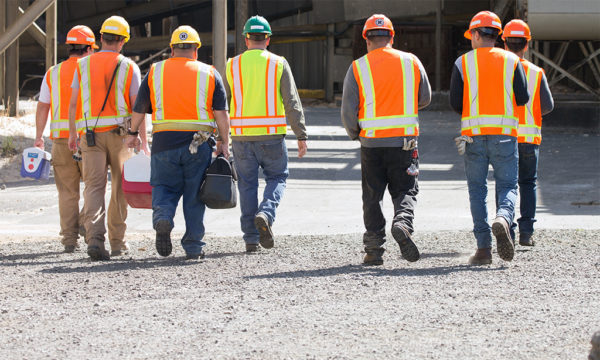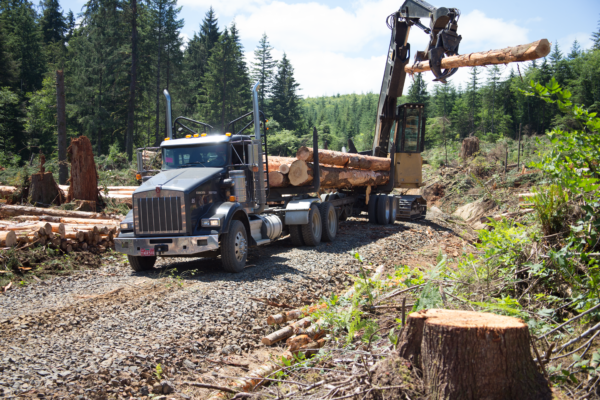Sustainability
Ensuring economic and environmental health in our communities.
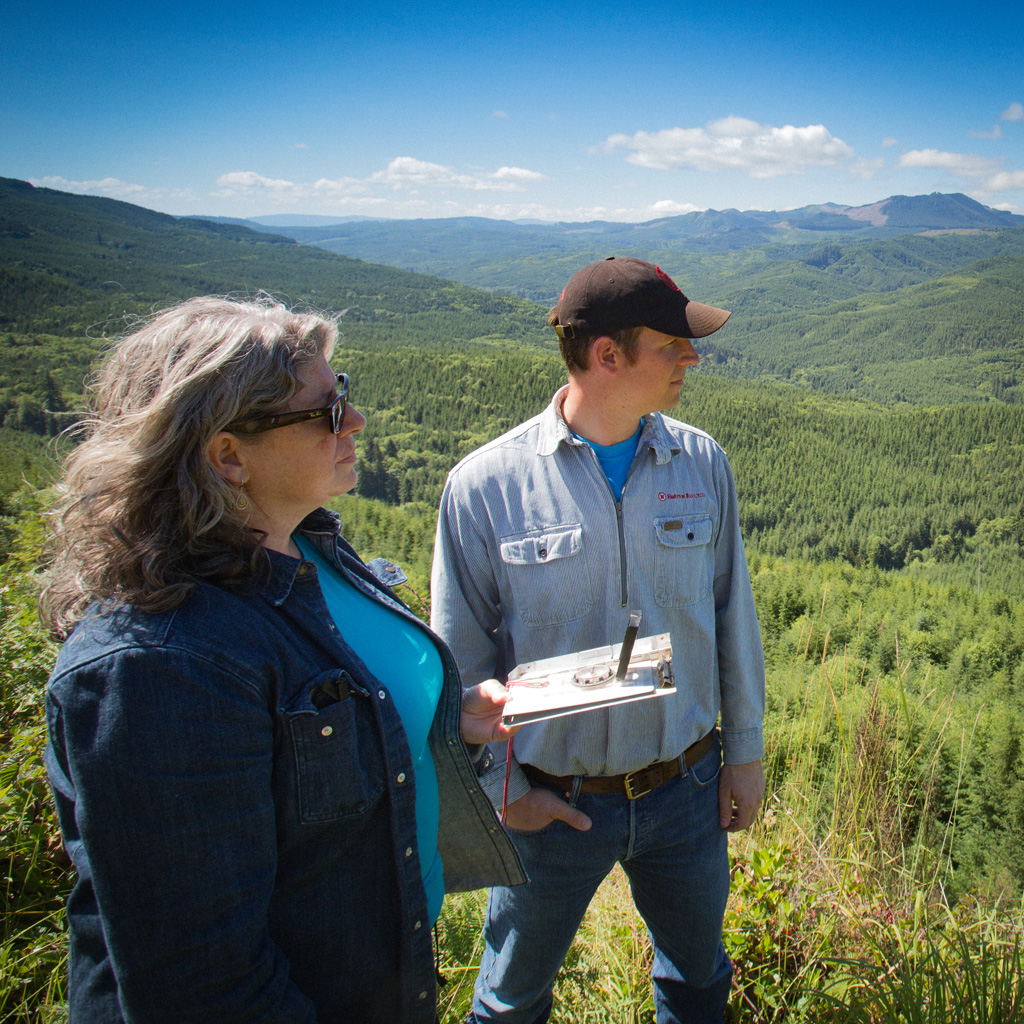
Sustainable Forests
We take stewardship to heart
Our professional foresters manage our forestland to help meet the need for raw wood materials without compromising long-term habitat values or our ability to continue the cycle of growth and harvest for generations to come. We only grow native tree species and working forestlands are always replanted for future generations. New trees spend the next 40-60 years providing habitat and high levels of water quality as they grow until it’s time once again to harvest and renew the cycle. At Hampton, we endeavor to find a better way every day in all we do. That extends to forest management. We have a deep respect for the land we manage and pride ourselves on being both good stewards and good neighbors.
Sustainable Materials
Wood works
Wood is not only a renewable resource, it is an incredibly efficient way to meet a number of economic, social, and environmental needs. Trees remove and store CO2 from the atmosphere as they grow. Harvesting and turning trees into lumber for buildings, furniture, and other products helps us capture that carbon while meeting needs for housing and development. The Pacific Northwest is one of the best places on earth to grow trees so all our wood materials are sourced and manufactured locally.
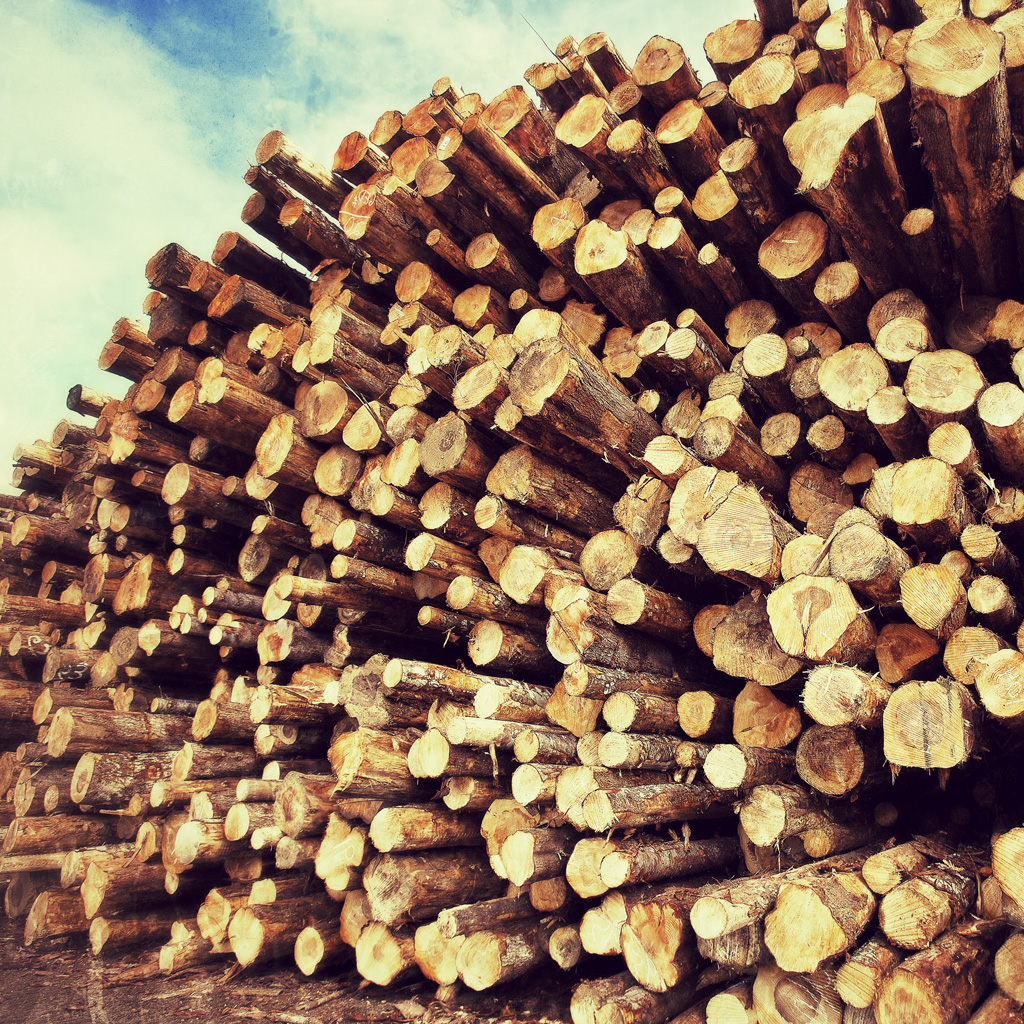
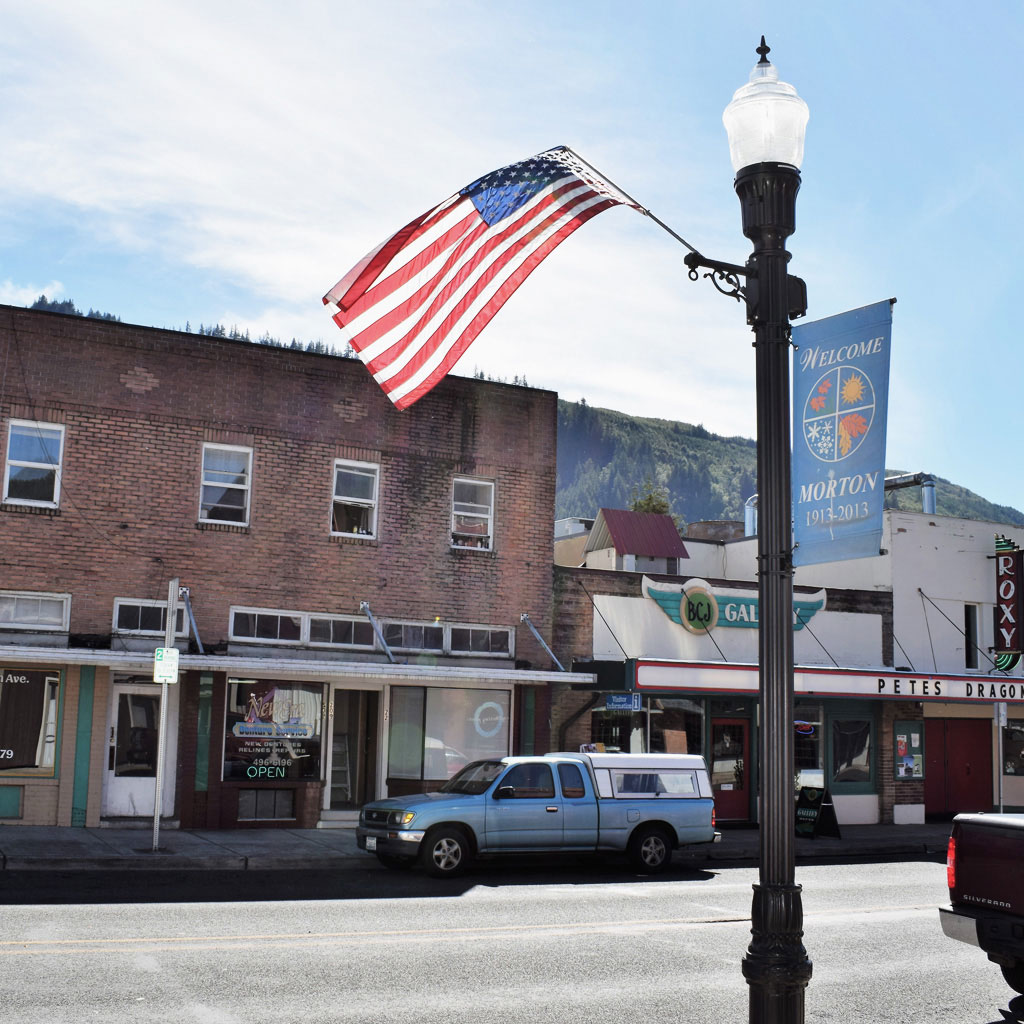
Sustainable Communities
Forests support rural and urban communities
Plant a tree and all sorts of things sprout up around them. Wildlife. Recreation. Jobs. Energy. Opportunities. Sustainably managed forests ensure these benefits will be plentiful well into the future. Local forests enable rural wood manufacturing and supply communities across the U.S. and abroad with green building materials and a variety of other products.
From the forest
to the mill
to the world.
Expert Voices
What People Are Saying About Wood Products
Western Innovator: Creating pollinator habitats in forests
A Northwest timber company is studying how to support bees among trees. Hampton Lumber, a fourth-generation family business, is building pollinator habitats at its timber harvest sites around Oregon and Washington. Read More
Guest Column: Who will protect all the values of our forests?
Daily Astorian, 12/29/22 – In mid-November, the Oregon Board of Forestry met in Seaside to discuss, among other things, a new 70-year plan for state forests. At the meeting, environmental interest groups led petitions to support the plan regardless of the impacts to rural Oregon. Their solution to the ensuing drop in revenue? Decouple state […] Read More
OSU researcher helps UN develop sustainable forest products recommendations
Oregon State University, 12/27/22 – “Three-quarters of current total material demand is met through non-renewable natural re- sources,” the authors note. “Changing unsustainable consumption patterns is necessary to avert a climate catastrophe. Transitioning to a forest-based circular bioeconomy can be a significant step in that direction.” Read More



